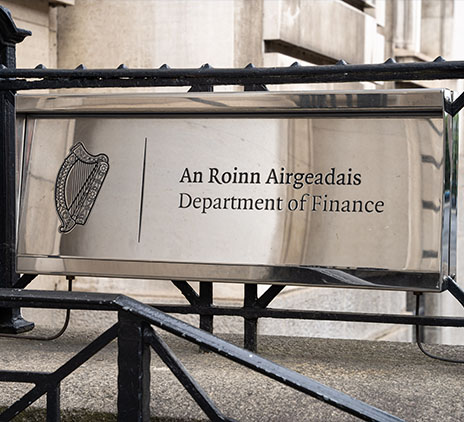-
Aviation Advisory
Our dedicated Aviation Advisory team bring best-in-class expertise across modelling, lease management, financial accounting and transaction execution as well as technical services completed by certified engineers.
-
Consulting
Our Consulting team guarantees quick turnarounds, lower partner-to-staff ratio than most and superior results delivered on a range of services.
-
Business Risk Services
Our Business Risk Services team deliver practical and pragmatic solutions that support clients in growing and protecting the inherent value of their businesses.
-
Deal Advisory
Our experienced Deal Advisory team has provided a range of transaction, valuation, deal advisory and restructuring services to clients for the past two decades.
-
Forensic Accounting
Our Forensic and Investigation Services team have targeted solutions to solve difficult challenges - making the difference between finding the truth or being left in the dark.
-
Financial Accounting and Advisory
Our FAAS team designs and implements creative solutions for organisations expanding into new markets or undertaking functional financial transformations.
-
Restructuring
Grant Thornton is Ireland’s leading provider of insolvency and corporate recovery solutions.
-
Risk Advisory
Our Risk Advisory team delivers innovative solutions and strategic insights for the Financial Services sector, addressing disruptive forces, regulatory changes, and emerging trends to enhance risk management and foster competitive advantage.
-
Sustainability Advisory
Our Sustainability Advisory team works with clients to accelerate their sustainability journey through innovative and pragmatic solutions.

-
 Asset management Asset management of the futureIn today’s global asset management landscape, there is an almost constant onslaught of change and complexity. To combat such complex change, asset managers need a consolidated approach. Read our publication and find out more about what you can achieve by choosing to work with us.
Asset management Asset management of the futureIn today’s global asset management landscape, there is an almost constant onslaught of change and complexity. To combat such complex change, asset managers need a consolidated approach. Read our publication and find out more about what you can achieve by choosing to work with us. -
 Internal Audit Maintaining Compliance with New EU Pension Directive IORP IIOn 28 April 2021, the Irish Government transposed IORP II (Institution for Occupational Retirement Provision), an EU directive on the activities and supervision of pension schemes, into law.
Internal Audit Maintaining Compliance with New EU Pension Directive IORP IIOn 28 April 2021, the Irish Government transposed IORP II (Institution for Occupational Retirement Provision), an EU directive on the activities and supervision of pension schemes, into law. -
 Risk, Compliance and Professional Standards FRED 82 – Periodic Updates to FRS 100 – 105The concept of a new suite of standards for the UK and Ireland, aligning with international financial reporting standards, was first conceived in 2002
Risk, Compliance and Professional Standards FRED 82 – Periodic Updates to FRS 100 – 105The concept of a new suite of standards for the UK and Ireland, aligning with international financial reporting standards, was first conceived in 2002 -
 Audit and Assurance Auditor transition: how to achieve a smooth changeoverAppointing new auditors may seem like a daunting task that will be disruptive to your business and a drain on the finance function. Nevertheless, there are a multitude of reasons to consider a change, including simply seeking a ‘fresh look’ at the business.
Audit and Assurance Auditor transition: how to achieve a smooth changeoverAppointing new auditors may seem like a daunting task that will be disruptive to your business and a drain on the finance function. Nevertheless, there are a multitude of reasons to consider a change, including simply seeking a ‘fresh look’ at the business.
-
Corporate Tax
Our Corporate Tax team is made up of more than 40 highly experienced senior partners and directors who work directly with a wide range of domestic and international clients; covering Corporation Tax, Company Secretarial, Employer Solutions, Global Mobility and Tax Incentives.
-
Financial Services Tax
The Grant Thornton team is made up of experts who are fully up to date in terms of changing and evolving tax legislation. This is combined with industry expertise and an in-depth knowledge of the evolving financial services regulatory landscape.
-
Indirect Tax Advisory & Compliance
Grant Thornton’s team of indirect tax specialists helps a range of clients across a variety of sectors including pharmaceuticals, financial services, construction and property and food to navigate these complexities.
-
International Tax
We develop close relationships with clients in order to gain a deep understanding of their businesses to ensure they make the right operational decisions. The wrong decision on how a company sells into a new market or establishes a new subsidiary can have major tax implications.
-
Private Client
Grant Thornton’s Private Client Services team can advise you on all areas of financial, pension, investment, succession and inheritance planning. We understand that each individual’s circumstances are different to the next and we tailor our services to suit your specific needs.


At its March 2020 meeting, the International Accounting Standards Board deferred the effective date of IFRS 17 Insurance Contracts for a year to 1 January 2023, with early application permitted.The temporary exemption to IFRS 9 Financial Instruments, granted to insurers who meet specified criteria, was also extended to 1 January 2023.
IFRS 17 supersedes IFRS 4 Insurance Contracts which was only ever intended to be a temporary standard. IFRS 4 allowed entities to use a wide variety of accounting practices for insurance contracts, reflecting national accounting requirements and variations of those requirements. This lack of harmonization made it difficult to understand and compare insurers’ results. The need for a common global insurance accounting standard was universally agreed; however, a consensus as to what it should contain was harder to reach.
Now finalised IFRS 17 applies a current value approach to measuring insurance contracts and recognises profit as insurers provide services to policyholders. The profit or loss earned from underwriting activities is reported separately from financing activities. Detailed note disclosures are required to explain how new business issued, experience in the year, cash receipts and payments, and changes in assumptions are affected the performance and the carrying amount of insurance contracts.
Some previous accounting practices under IFRS 4 did not adequately reflect the true underlying financial position or the financial performances of these insurance contracts. After more than 20 years in development, the new standard is intended to increase the transparency of insurers’ financial positions and performance and will make their financial statements more comparable with both other insurers. Users of financial statements will receive more and different information about a firm’s insurance contracts under IFRS 17 than in the past.
The impact on the insurance firm and the degree of change compared to existing practice will vary based on existing accounting policies and the types of business written. However, the quantum of change should not be underestimated. Preparations for FRS 17 in the areas of finance, actuarial, I.T. and operations should be well underway
Receive the latest insights, news and more direct to your inbox.
While preparations are underway it is worth taking a step back and reflecting on the findings published a number of years ago following the Central Bank’s IFRS 17 questionnaire to ensure that the governance perspectives are not overlooked:
- Board training on IFRS 17 will be crucial to ensure the Board’s understanding on IFRS 17
- IT and Infrastructure developments should be well advanced and testing underway
- If outsourcing is being used, ensure that there are appropriately robust governance arrangements around this
- If additional resources are required recruit early for these as individuals with IFRS 17 expertise are in demand
Insurance entities should ensure that appropriate planning arrangements and governance structures are in in place to mitigate the risks associated with the IFRS 17 implementation not least as the Central Bank of Ireland has advised that it will monitor the operational risk exposure associated with the implementation of IFRS 17 through its on-going supervisory activities.














